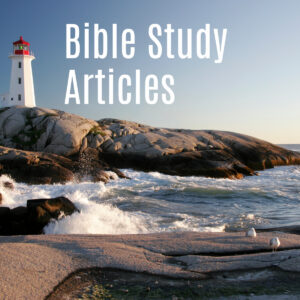Johann
Active Member
And I know context-God's chosen, Covenantal nation.healing the sick is those sick/dead in sin. Hosea 14:4 "I will heal their backsliding, I will love them freely: for mine anger is turned away from him.""
This is obviously God saying He will do it personally.
I know the difference between physical healing, which is what Jesus told the disciples to do, and the healing that Jesus brings in salvation. They are not the same thing.
NASB (UPDATED) TEXT: HOSEA 14:4-7
4I will heal their apostasy,
I will love them freely,
For My anger has turned away from them.
5I will be like the dew to Israel;
He will blossom like the lily,
And he will take root like the cedars of Lebanon.
6His shoots will sprout,
And his beauty will be like the olive tree
And his fragrance like the cedars of Lebanon.
7Those who live in his shadow
Will again raise grain,
And they will blossom like the vine.
His renown will be like the wine of Lebanon.
14:4 “I will heal their apostasy”
In verses 4-8 God speaks! The VERB (BDB 950, KB 1272) is a Qal IMPERFECT. Healing is an OT metaphor for forgiveness (cf. Hos. 5:13; 6:1; 7:1; 11:3; Ps. 103:3; Isa. 57:18; Jer. 3:22).
The term “apostasy” (BDB 1000) is literally “turning back” (cf. Hos. 11:7). It is used in Jeremiah for turning away from YHWH (cf. Jer. 2:19; 3:22; 5:6; 8:5; 14:7; Judah is called faithless in Jer. 3:6,8,11,14; also notice Jer. 7:24). If Israel “turns back” (i.e., repents) from sin (cf. Hos. 14:1) YHWH will “heal their turning back” (i.e., apostasy) tendencies! His anger has “turned away from them” (cf. Deut. 30:1-10). Notice the series of word plays on shub (BDB 996). See Special Topic: Apostasy (aphistçmi).
“I will love them freely”
This VERB (BDB 12, KB 17, Qal IMPERFECT) is parallel to heal in line 1. Grace (God's unchanging character), not merit (humans ever-changing heart and motives), is the key to the new covenant (cf. Jer. 31:31-34; Ezek. 36:22-38). However, an initial and ongoing response is demanded, not only repentance and faith (cf. Deut. 30; Mark 1:15; Acts 2:21), but also obedience (cf. Luke 6:46) and perseverance (cf. Rev. 2-3).
“My anger has turned away from them”
The term “anger” (BDB 60) is from “nose” or “face.” Anger can be seen in a red face and hard breathing. Here is an anthropomorphism for God's deep feelings.
There is a play on the word “turn back” or “return” (BDB 996) in this context:
1. return, Hos. 14:1
2. return to, Hos. 14:2
3. turn away, Hos. 14:4
4. also in Hos. 14:7
14:5 “the dew” Dew (literal here, not like 6:4; 13:3) is the only source of moisture in Israel between the two rainy periods and is crucial for crops to mature. Verses 5-7 describe the agricultural signs of God's blessings (cf. Deut. 27-28).
There is a series of JUSSIVES in Hos. 14:5-6:
1. “blossom,” Hos. 14:5 - BDB 827, KB 965, Qal IMPERFECT - JUSSIVE in meaning
2. “will stake its roots,” Hos. 14:5 (i.e., will take root) - BDB 645, KB 697, Qal JUSSIVE
3. “sprout” (lit. “go”), Hos. 14:6 - BDB 229, KB 246, Qal IMPERFECT - JUSSIVE in meaning
4. “will be” - BDB 224, KB 243, Qal JUSSIVE
▣ “Lebanon” This is the land north of Israel called Phoenicia, whose capital is Tyre. It was famous for its trees. In this context
1. trees, Hos. 14:5 (parallel to city)
2. trees, Hos. 14:6 (parallel to olive trees)
3. wine, Hos. 14:7 (parallel to vine)
In context, this may be a veiled reference to Ba'al, who Jezebel from Tyre, brought into Israel. The fertility of Lebanon was from YHWH, not Ba'al (cf. Hos. 14:8).
14:6-7 “olive tree. . .grain. . .vine” The three main crops of Palestine are olive oil, grains, and grapes. YHWH gave them this fertile land (e.g., Deut. 8:7-9; 11:9-12). These were from YHWH, not Ba'al! The restoration of God's people to the land flowing with milk and honey is described as agricultural abundance (cf. Amos 9:13-15), but in reality it is the intimacy of the interpersonal relationship that is the greatest joy of a restored and renewed people/family!
14:7 “Those who live in his shadow” The VERB (BDB 442, KB 444, Qal PERFECT) means to sit or to dwell. This is a metaphor of (1) God as a mother bird who protects her young under her wings (cf. Ps. 17:8; 36:7; 57:1; 63:7; Matt. 23:27) or (2) because of the agricultural context of Hos. 14:5-7 and 8, this probably refers to God as a provider of a fruitful tree (cf. Hos. 14:8; Ezek. 17:22-24). See Special Topic: Shadow As a Metaphor for Protection and Care.
It is YHWH, not Ba'al, who is the source of fertility and stability (cf. Hos. 14:8).
Utley-if you haven't heard of him.

